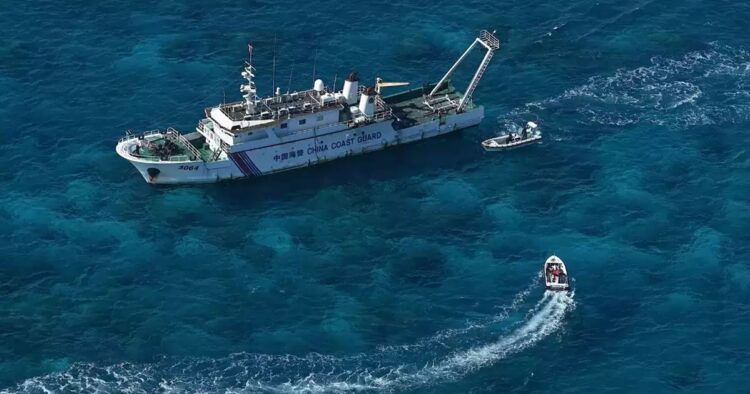In a firm declaration of its sovereignty, the Philippines vows to maintain and resupply its outposts in the South China Sea without seeking permission from any other country. National Security Adviser Secretary Eduardo Ano reaffirmed the country’s commitment to uphold its rights over the Second Thomas Shoal, stressing that operations occur within Philippine territorial waters and exclusive economic zones.
This stance, outlined by the Philippines’ National Security Council, comes in response to China’s demand for prior notification from Manila before accessing the area.
China’s foreign ministry had suggested that the Philippines inform Beijing beforehand for access, stating that it would permit supply deliveries and personnel evacuations under such conditions.
Secretary Ano dismissed these demands as “absurd, nonsense, and unacceptable,” firmly asserting the Philippines’ autonomy in its activities within the region. He emphasized that the country does not require China’s approval for its operations in the South China Sea.
Despite the Philippines’ unwavering stance on sovereignty, the country remains open to peaceful dialogue and negotiations to resolve disputes in the South China Sea. The Philippine coastguard recently accused its Chinese counterpart of obstructing efforts to evacuate an ailing member of the armed forces in the area. This incident underscores the ongoing tensions in the region, which have roots in a longstanding territorial dispute.
China’s claims over almost the entire South China Sea have been a source of contention, as the area serves as a vital passage for over $3 trillion in annual shipping commerce. In 2016, the Permanent Court of Arbitration in The Hague ruled against China, stating that its claims lacked legal basis. Beijing, however, has rejected this decision, fueling further discord in the region.
The Philippines’ assertive stance reflects its determination to safeguard its territorial rights in the face of external pressures. As tensions persist in the South China Sea, Manila’s commitment to upholding its sovereignty sets the stage for continued diplomatic and geopolitical maneuvering in the region.

















Comments